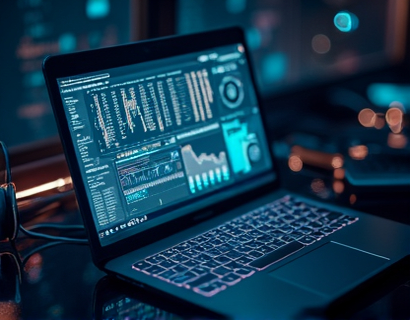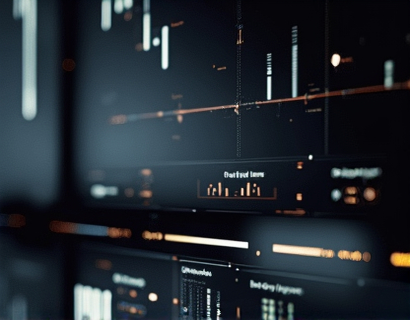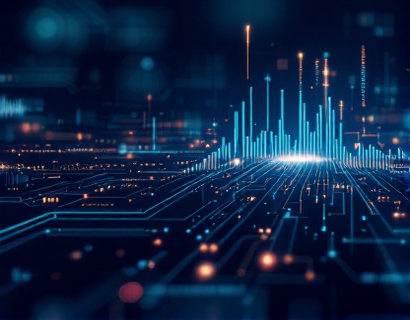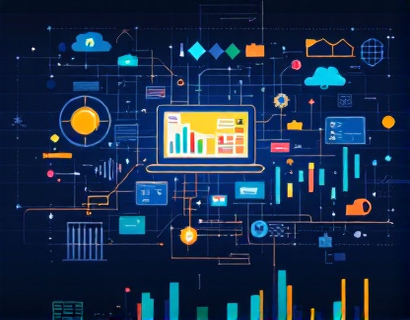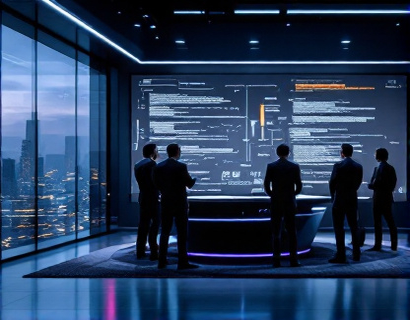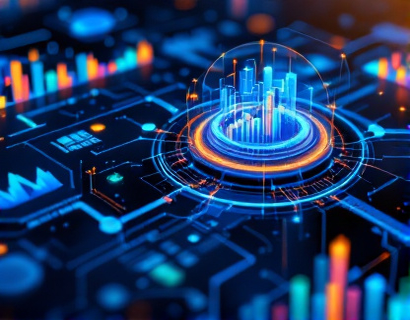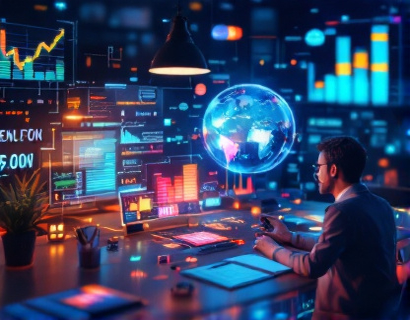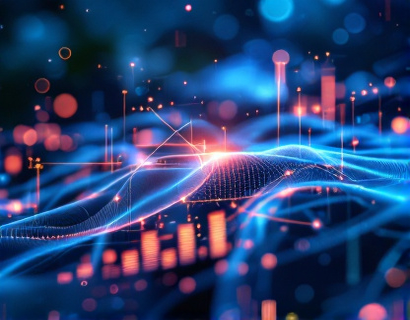Transforming Productivity with Next-Gen Digital Solutions: The Synergy of AI and Crypto
The integration of artificial intelligence (AI) and cryptocurrency is revolutionizing the way tech innovators and early adopters approach productivity in the modern workplace. This synergy is not just about adopting new technologies but redefining efficiency, task management, and digital interactions. As we delve into this transformative landscape, it's essential to understand how these cutting-edge solutions are reshaping the digital ecosystem to meet the demands of today's fast-paced environment.
The convergence of AI and cryptocurrency brings a unique set of advantages that traditional systems cannot match. AI's ability to process vast amounts of data quickly and accurately, combined with the decentralized and secure nature of blockchain technology, creates a powerful toolset for enhancing productivity. This article explores how these technologies are being leveraged to create next-generation digital solutions that maximize efficiency and streamline workflows.
Enhancing Task Management with AI
One of the most immediate impacts of AI in the workplace is in task management. AI-driven tools can analyze user behavior, predict workloads, and optimize task assignments. For instance, AI algorithms can identify patterns in how tasks are completed and suggest the most efficient sequences for multitasking. This not only saves time but also reduces the cognitive load on employees, allowing them to focus on higher-value tasks.
Project management platforms powered by AI can automate routine tasks such as scheduling meetings, setting reminders, and tracking progress. These platforms use natural language processing (NLP) to understand and respond to user commands, making the interaction seamless and intuitive. By automating mundane tasks, AI enables team members to concentrate on creative and strategic work, thereby boosting overall productivity.
Cryptocurrency and Decentralized Workflows
Cryptocurrency introduces a new paradigm for financial transactions within the workplace. Traditional payment systems are often slow, expensive, and prone to fraud. Cryptocurrency, on the other hand, offers a fast, secure, and transparent way to handle payments. Smart contracts, which are self-executing contracts with the terms directly written into code, can automate payment processes based on predefined conditions. This reduces the need for intermediaries and ensures that transactions are completed swiftly and reliably.
Decentralized applications (dApps) built on blockchain technology can further enhance workflow efficiency. These applications operate on a distributed network, eliminating the risk of a single point of failure. For example, a decentralized time-tracking system can accurately record work hours without the need for a central authority, ensuring data integrity and reducing the potential for fraud.
Data Security and Privacy
Data security is a critical concern in any digital transformation. AI and cryptocurrency together offer robust solutions to protect sensitive information. Blockchain's inherent security features, such as cryptographic hashing and consensus mechanisms, ensure that data is tamper-proof and transparent. AI can enhance this by detecting and mitigating security threats in real-time. Machine learning algorithms can analyze patterns in network traffic to identify anomalies and potential breaches, providing a proactive defense against cyber threats.
Privacy is another area where AI and cryptocurrency intersect. Zero-knowledge proofs, a cryptographic method, allow one party to prove to another that a statement is true without revealing any information beyond the statement itself. This technology can be used to verify user identities and access rights without exposing sensitive data, ensuring both security and privacy in digital interactions.
Optimizing Resource Allocation
AI-driven analytics can significantly improve resource allocation in organizations. By analyzing historical data and real-time metrics, AI can predict resource needs and optimize the distribution of tasks and assets. This ensures that resources are used efficiently, reducing waste and increasing productivity. For example, AI can predict which projects are likely to require more computational power or human resources and allocate accordingly, ensuring that the right tools and people are in place when needed.
Cryptocurrency can also play a role in resource allocation by providing a fair and transparent mechanism for rewarding contributions. Token-based systems can incentivize employees to perform tasks efficiently and collaboratively. These tokens can be used within the organization for various benefits, such as access to premium tools, training programs, or even financial rewards, creating a motivating and equitable work environment.
Enhancing Collaboration and Communication
Collaboration is a cornerstone of modern productivity, and AI and cryptocurrency are transforming how teams work together. AI-powered communication tools can analyze conversation patterns and provide insights to improve team dynamics. For instance, sentiment analysis can help identify potential conflicts or areas where team members may need additional support. Virtual assistants can schedule meetings, manage calendars, and even translate languages in real-time, breaking down barriers and fostering global collaboration.
Cryptocurrency facilitates seamless transactions within and between organizations, making it easier to collaborate on cross-border projects. Stablecoins, which are cryptocurrencies pegged to stable assets like the US dollar, reduce currency risk and provide a stable medium of exchange. This is particularly beneficial for international teams that need to handle frequent transactions in different currencies.
Future-Proofing the Workplace
The integration of AI and cryptocurrency is not just about current efficiency gains; it's about future-proofing the workplace. As technology continues to evolve, organizations that adopt these innovations will be better positioned to adapt to new challenges and opportunities. AI's ability to learn and improve over time ensures that digital solutions remain relevant and effective. Cryptocurrency's decentralized nature means that these systems are less vulnerable to disruptions caused by central authority failures or regulatory changes.
Moreover, the adoption of these technologies can attract top talent who are eager to work with cutting-edge tools and contribute to innovative projects. Companies that embrace AI and cryptocurrency are likely to be seen as forward-thinking and attractive employers in the tech industry.
Challenges and Considerations
While the potential benefits are significant, there are also challenges and considerations to keep in mind. One of the primary concerns is the learning curve associated with new technologies. Organizations need to invest in training and development to ensure that employees can effectively utilize AI and cryptocurrency tools. Additionally, regulatory frameworks for cryptocurrency are still evolving, and compliance can be a complex issue. It's crucial for organizations to stay informed about legal requirements and best practices.
Another consideration is the environmental impact of cryptocurrency mining, particularly for proof-of-work blockchains. While newer, more efficient consensus mechanisms are being developed, the energy consumption of some cryptocurrencies remains a concern. Organizations should explore sustainable practices and support eco-friendly blockchain solutions to minimize their environmental footprint.
Conclusion
The synergy between AI and cryptocurrency is paving the way for a new era of productivity in the digital workplace. By leveraging these technologies, organizations can enhance task management, optimize resource allocation, ensure data security, and foster seamless collaboration. As tech innovators and early adopters, embracing these next-generation digital solutions is not just an option but a necessity to stay competitive and relevant in the rapidly evolving tech landscape. The future of productivity is here, and it is powered by AI and cryptocurrency.







